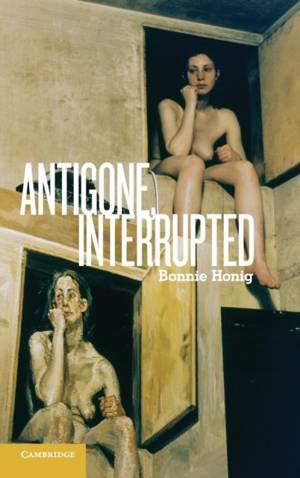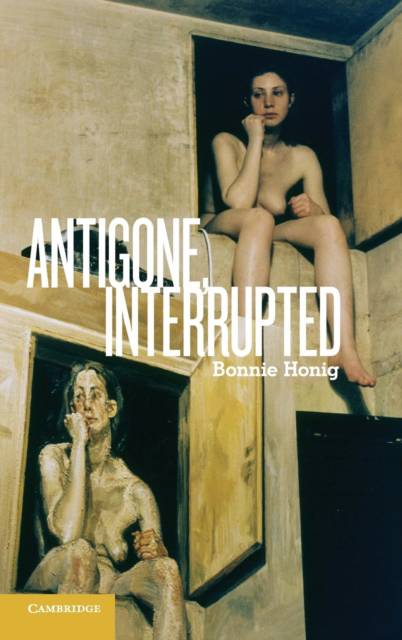
Je cadeautjes zeker op tijd in huis hebben voor de feestdagen? Kom langs in onze winkels en vind het perfecte geschenk!
- Afhalen na 1 uur in een winkel met voorraad
- Gratis thuislevering in België vanaf € 30
- Ruim aanbod met 7 miljoen producten
Je cadeautjes zeker op tijd in huis hebben voor de feestdagen? Kom langs in onze winkels en vind het perfecte geschenk!
- Afhalen na 1 uur in een winkel met voorraad
- Gratis thuislevering in België vanaf € 30
- Ruim aanbod met 7 miljoen producten
Zoeken
Omschrijving
Sophocles' Antigone is a touchstone in democratic, feminist and legal theory, and possibly the most commented upon play in the history of philosophy and political theory. Bonnie Honig's rereading of it therefore involves intervening in a host of literatures and unsettling many of their governing assumptions. Exploring the power of Antigone in a variety of political, cultural, and theoretical settings, Honig identifies the 'Antigone-effect' - which moves those who enlist Antigone for their politics from activism into lamentation. She argues that Antigone's own lamentations can be seen not just as signs of dissidence but rather as markers of a rival world view with its own sovereignty and vitality. Honig argues that the play does not offer simply a model for resistance politics or 'equal dignity in death', but a more positive politics of counter-sovereignty and solidarity which emphasizes equality in life.
Specificaties
Betrokkenen
- Auteur(s):
- Uitgeverij:
Inhoud
- Aantal bladzijden:
- 340
- Taal:
- Engels
Eigenschappen
- Productcode (EAN):
- 9781107036970
- Verschijningsdatum:
- 2/05/2013
- Uitvoering:
- Hardcover
- Formaat:
- Genaaid
- Afmetingen:
- 160 mm x 231 mm
- Gewicht:
- 635 g

Alleen bij Standaard Boekhandel
+ 273 punten op je klantenkaart van Standaard Boekhandel
Beoordelingen
We publiceren alleen reviews die voldoen aan de voorwaarden voor reviews. Bekijk onze voorwaarden voor reviews.









